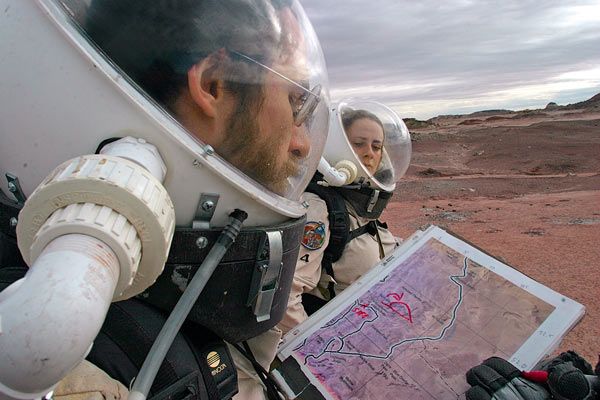New publications
Learning to live on Mars: scientists have developed a fatigue management program
Last reviewed: 01.07.2025

All iLive content is medically reviewed or fact checked to ensure as much factual accuracy as possible.
We have strict sourcing guidelines and only link to reputable media sites, academic research institutions and, whenever possible, medically peer reviewed studies. Note that the numbers in parentheses ([1], [2], etc.) are clickable links to these studies.
If you feel that any of our content is inaccurate, out-of-date, or otherwise questionable, please select it and press Ctrl + Enter.
At the beginning of August this year, the Curiosity rover team is conducting research work on Mars, analyzing the surface of the red planet.
And a team of scientists on Earth is trying to figure out how the Martian day, which is 40 minutes longer than ours on Earth, might affect the human body.

Scientists are confident that a difference of 40 minutes can cause disruptions in a person’s internal biological circadian rhythms.
Scientists from Brigham and Women's Hospital have developed and studied a program that can manage human fatigue and coordinate the work of all body systems in the event of such a disruption in the rhythm of life.
The team of scientists' results were published in the journal Academic Medicine.
The dispatchers who control the presence of the Curiosity rover team on Mars communicate with the expedition on Mars time. This unusual schedule causes some inconvenience and problems, because our internal biological clock is adjusted to 24 hours, and not to 24.65 hours, that is, it is oriented to the change of light and dark time. It is very difficult for people to fall asleep, wake up and work in this mode.
"Our study aimed to examine the effectiveness of the control program and the extent to which the team could learn to quickly 'reset' their biological clocks, improving the quality of sleep, work and concentration in these conditions," says lead author Stephen Lockley.
The team studied the health of 19 full-time employees who had been on the mission for more than 11 weeks. Using a device that each team member wore on their wrist, the scientists were able to record their health indicators. A subset of the experiment participants also received portable devices that produced blue light so that they could quickly “reboot” the body’s system and improve its performance by turning them on.
According to the data obtained, most of the astronauts were able to adapt to the rhythm of life on Mars.
"While humans have a hard time adapting to a 24.65-hour day cycle, our research could provide a basis for developing and improving fatigue management programs," says physiologist Laura Bargrer. "This program could significantly reduce the impact of the red planet's circadian length on humans."

 [
[